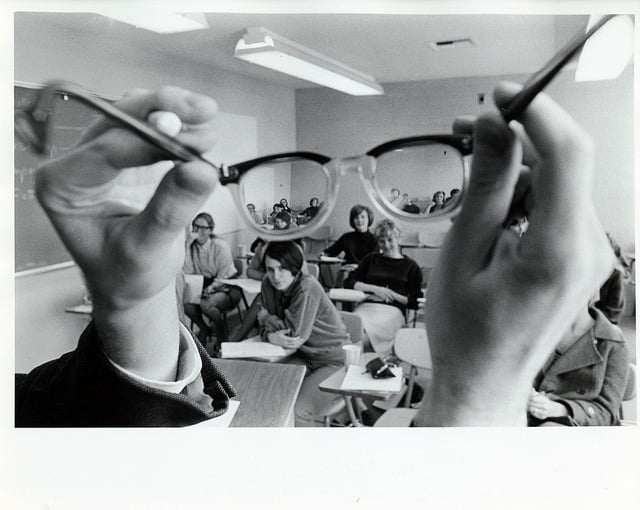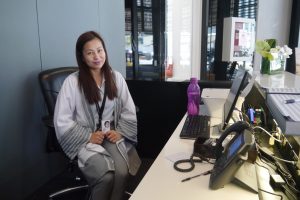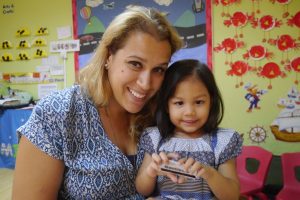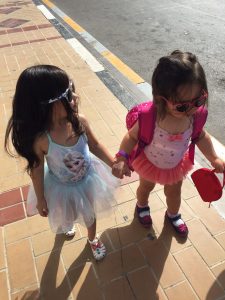
by Ketakandriana Rafitoson | May 26, 2016 | 2016, Africa, Africa and Middle East, Madagascar, World Motherhood
I am writing this post in chilly Dublin, far away from home. I miss my family and I’m happy to go home soon. I have to stay awake in order to catch my flight and seize this moment to write about a story which recently marked my life.
On May 10, I met Ban Ki-moon, the UN Secretary-General and his wife, in my hometown, Antananarivo. The local branch of UNHCHR sent me a personal invitation a few days before, and then someone recalled me saying that I’ve been dropped from the list….Two days later, they called me again to say that I’m on the list. It was quite weird! In fact, it appeared that some UN people didn’t want Mr Ban to meet civil society representatives because they had the feeling that CSOs are “disturbing”, “always critical”, “negative”, and so on….
But someone fought for us and finally, my name was put on the list among 11 other people. I was officially supposed to represent Liberty 32, a non-profit which mainly deals with civic education and human rights, but I also wanted to say something on behalf of Wake Up Madagascar, a nonviolent civil resistance movement that I’m part of.
I thought about a genuine way to pass a message to Mr Ban, which was “Don’t let Malagasy politicians fool you. Our reality is far more horrible than what they will show to you.” In fact, a few days before Ban’s arrival to Madagascar, streets were cleaned, merchants chased from their daily places and misery hidden. Shameful!
On May 9 the 12 of us were asked to meet local UN representatives for a briefing.
They told us to be constructive, not to openly criticize the government because this will put Mr Ban in an “uncomfortable position’. I was more than upset to hear that, and that strengthened my need to do something exceptional.
The D-day, we’d been given an appointment in one of the most luxurious hotels of Antananarivo. No pictures allowed, last briefing remarks. We were ready to meet THE man.
He arrived with his wife and staff, very cool, smiling, and frank. We took an official photo (which we haven’t yet seen since), and we sat down around a square table. After the usual opening remarks and self-introductions, Mr Ban said a few words about his visit, saying that he has always worked with civil society and that this meeting was crucial to him. Then, our representative read our common declaration for 5 minutes.
Afterwards, the Chair asked if someone would like to briefly take the floor. I grabbed the mic and said all I wanted to say in 2 minutes: women and youth problems, insecurity, political instability, fragility, the need to improve citizens’ political participation, and so on. I ended by asking the permission to give Mr. and Mrs. Ban a small gift. Security guards and policemen stood right on their feet but the SG allowed me to do so.
I offered them a special photo album prepared by Wake Up Madagascar – and which I hid as my notebook while entering the room. 15 striking photos showing Malagasy people’s misery and extreme poverty…. I kindly asked Mr Ban not to throw it away, and I believe (I hope) he didn’t…. After answering our talks in a very sincere way, he kept the album with him, didn’t give it to his assistant, as he left us.
On May 11, Mr Ban gave an address before MPs and the government, and his words were sharp as a knife. Have our messages reached their destination? Who knows? I wanted to share this story because it made me so proud. Being a mom implies taking some risks, not only for your family, but also for your country. Don’t you ever let someone tell you to close your mouth when you have something important to say! Speak up! Speak out! That may change some lives! I don’t pretend I’ve changed the world, but I stood for my world, at my small scale. And that matters.
This is an original post for World Moms Blog by Ketakandriana Rafitoson, our new contributor from Madagascar.
Photo courtesy of Inge van Mill, via Minister-president Rutte / Flickr.

by Katinka | May 23, 2016 | Adoption, Belgium, Europe, World Motherhood
Despicable Me. Mr Peabody and Sherman. Meet the Robinsons. Annie. Tangled. Mowgli. Kungfu Panda.
Adoption – or the search for roots and heritage – seems a very recurrent and strong theme in children’s movies and tales. I guess it has to do with the struggle each child goes through, when exploring her identity and finding her place in an increasingly bigger world while she grows up. Who hasn’t fantasized, once, about being adopted and actually being royalty, or an adventurer’s kid? We wanted to have a strong heritage, because it would radiate on us. We would be strong and shiny and extraordinary too. Or we just wished for those other parents who would never ever make us go to bed at eight pm or force us to eat broccoli soup.
As an adoptive parent, I try to carefully probe for my daughter’s feelings about the adoption-themed movies she loves to watch. We are very open about her adoption, but it’s not like we organize family discussions around the theme. We just make sure she knows she can talk to us about anything, including her feelings about being adopted.
The movies help her to grasp the complex feelings she has about her adoption-status. She loves us, but she misses her birth mother. She feels loved, but also rejected. She belongs in Belgium and in Ethiopia. She’s torn between two loyalties. It’s all way too complex for a seven-year old to deal with. Being adopted is not the gift many people seem to think it is to her.
She watched Tangled (or Rapunzel for some of us) right about the same time she was struggling with being our daughter. She was absolutely thrilled when she found out the ‘mother’ of Rapunzel was actually a witch who had stolen the princess as a baby. Oh yes. I became that witch to her in no time. We must have stolen her, she tended to say. Because no parent who loved her child would ever give it up for adoption. It was her way of dealing with rejection. And it give her leave to rebel against every single ‘no’ we gave her. We were not her parents anyway.
The Tangled-phase passed. Today, she relates to Po, and not just because she likes his Kungfu that much.
This Panda is as clearly adopted as she is. His is both black and white, like she is. And, most importantly, he met with his birth family. Just like she wants to.
So she watches Po’s adventures over and over again. She has this special giggle she keeps just for him. And she talks to me about her wishes and sorrows afterwards, without being probed. Infinitely more agreeable than the Tangled-period, for sure.
I’m already looking forward to the next movie-releases.
Do movies or cartoons help your children to reflect about their emotions? Can your children relate to struggling movie characters?
This is an original post by K10K of Belgium. Photo credit: homard.net. This picture has a creative commons attribution license.
If you ask her about her daytime job, Katinka will tell you all about the challenge of studying the fate of radioactive substances in the deep subsurface. Her most demanding and rewarding job however is raising four kids together with five other parents, each with their own quirks, wishes and (dis)abilities. As parenting and especially co-parenting involves a lot of letting go, she finds herself singing the theme song to Frozen over and over again, even when the kids are not even there...
More Posts

by Ecoziva (Brazil) | May 20, 2016 | 2016, Brazil, Domesticity, Education, Environment, Identity, Life, Life Balance, Life Lesson, Motherhood, Work, Working Mother, World Motherhood

When I was a teenager/young adult I wanted to change the world (as it happens with so many youngsters). And changing the world usually meant Doing Big Things.
Now, three kids and more than twenty years later, my saving the world efforts seem so distant. I grapple with alternating days when I stay home with the kids, sorting socks and washing dishes, and days teaching classes at the university, advising students’ research, and trying to do some research of my own.
At one point of my life I thought my career would be in the non-profit sector; i.e., I would be a professional environmentalist, forever. By then my volunteering efforts had evolved into parallel paying jobs related to social-environmental issues, and this kind of lifestyle went on for 12+ years.
I continued on to graduate school not because I wanted to become an academic, but because I thought it would be a great addition to what I already did. I found it exciting to go from project to project, often working on more than one at once. I felt almost repulsed by the thought of staying in the same job for the rest of my life, always doing the same thing. I even got a certain thrill from not knowing where my salary would come from after the current project ended.
My husband (who worked for the same NGO) was not as thrilled and dreamed of the day at least one of us would have a more stable job. Since I was already on the academic path in one way or the other, that person became me.
When I first became a professor I wasn’t overjoyed. Although I love to do research, teaching is a different story and it was very hard in the beginning. At this point I already had three children and the “saving the world” type of projects were in the past. Another dream that I tried to pursue (to become a professional writer) had also been buried. I sadly realized I wasn’t really passionate about anything anymore – except, of course, my kids.
By this time my husband had gotten a relatively stable government job, although he didn’t really love it. We were finally okay financially and we were living a comfortable life. Nevertheless, we began to question ourselves about our choices.
Were we still living according to the same principles we followed when we first met (especially in relation to the environment)? Were we fleeing our responsibility of making a difference in the world? Had we left our ideals aside for modern, middle class comforts? Were we still being true to our dreams?
At first I had a good excuse to avoid these issues because two of our kids were very small and I had to deal with all of the related motherhood issues. In parallel, I tried to make the most of my job focusing on the good things: stability, flexible hours, and the possibility of quantity time with my children even if that meant doing a lot of work at night and during the weekend. I told myself (and I still do), that there are many means to make a difference, even if in “small” ways.
After all, in practice, there are no real big things. Big things take place in small steps and often need more than one person involved. Also, what seems like small, local things, often involve a lot of work and may have a greater impact on the world than expected. No wonder one of the most popular environmentalist mottos is, “Think global, act local”.
Today, in my attempts to continue to be of service to the world, I try (for example) to be a good listener to my students because sometimes I sense they are more in need of a friendly ear than anything else. A great number of students suffer from depression and other related disorders, for instance. And it’s not that I serve as a psychologist or anything, but I frequently feel that just treating them kindly and making an effort to advise them extra well regarding academic issues makes a significant difference.
Yet the fact is, regardless of how we do in our present jobs, the sort of questions I listed before has been haunting us for the past few years. Now that our youngest is past three, these questions have resurfaced. The biggest issue that remains is how to be true to our dreams and ideals while at the same time guaranteeing enough food on the table (and healthcare, and a good education etc., etc.)?
This post will be continued in Part 2.
Please share your story below on how you have managed (or not) to follow your dreams, personally and professionally.
This post was inspired by two other posts: “Surviving the turmoil” and “My frame world”.
This is an original post to World Moms Blog by Ecoziva in Brazil.
Photo credit to Claremont Colleges Digital Library. This photo has a creative commons attribute license.
Eco, from the greek oikos means home; Ziva has many meanings and roots, including Hebrew (brilliance, light), Slovenian (goddess of life) and Sanskrit (blessing). In Brazil, where EcoZiva has lived for most of her life, giving birth is often termed “giving the light”; thus, she thought, a mother is “home to light” during the nine months of pregnancy, and so the penname EcoZiva came to be for World Moms Blog.
Born in the USA in a multi-ethnic extended family, EcoZiva is married and the mother of two boys (aged 12 and three) and a five-year-old girl and a three yearboy. She is trained as a biologist and presently an university researcher/professor, but also a volunteer at the local environmental movement.
More Posts

by Karen Williams | May 19, 2016 | 2016, Middle East, UAE, World Motherhood
You often hear that “it takes a village to raise a child.” Usually this takes the form of one’s family and friends in the familiar milieu of a place that you’ve been brought up in. However, when you’re an expat living far away from home, this might seemingly not apply. You will have occasional visitors, but for the most part you need to survive and thrive on your own.
We have almost reached the first anniversary of our arrival in Abu Dhabi and my daughter is approaching her third birthday. In the past year, she’s transformed into a confident little girl, due in great part to those whom she interacts with everyday. She loves talking to everyone she meets, and has made many friends with both children and adults alike.
I’ve had the fortune of meeting many people since we’ve arrived; some have become dear friends and others are acquaintances I meet occasionally in the course of my day. They offer friendship, conversation and support not only to me, but to my child and family. In a place like the UAE where expats make up 80% of the population, this is probably something that most of us strongly appreciate and even crave, especially when you’re a stay-at-home mum.
Here are a few of the wonderful people we’ve met, who are my daughter’s friends and who often help me to teach my child innumerable life lessons.

Mian is a receptionist in our building’s lobby and is often the first person we meet when we leave our apartment. She has a ten year-old son back in the Philippines and has spent the last 7 years working in Abu Dhabi to support her family. Her two sisters are coming over to work here, and she hopes that when this happens, she can take a break and be with her son for awhile. She recently returned from a one-month trip back home and has many stories to share of her son. Whenever we return from nursery, my daughter will run to the reception table to say hi and stop for a chat before we return home, telling Mian what she did with her friends that day.

At one of our favourite cafes in the neighbourhood, Cindy is my daughter’s favourite waitress. I think all parents would agree that friendly wait staff are angels sent from God! She takes the time to chat with my daughter and plays with her whenever we stop by. Cindy is 21, from Albania, and has been here for 1&1/2 years. Her brother arrived a few days ago and is about to start work in a newly-opened hotel, so she’s very happy that she now has family here. Cindy told me that back home, her mother looks after other children while their parents work. As a result, she used to spend a lot of time with them and could understand what it’s like to look after a child. It’s no wonder she’s so great with kids. We always enjoy our meals at the cafe, especially when Cindy is there as her friendliness never fails to bring a smile to my daughter’s face.

Ms Jasmin is my daughter’s teacher at nursery. She has lived in the UAE for the past decade and her two children have grown up here. When I asked her what was most challenging about her job, she said that it was educating parents and getting them to trust that the teachers knew what they were doing, as well as working together with parents to achieve the best for their children. The most fulfilling aspect was the kids themselves. Throughout the course of the school year, the children change immensely; they learn many new things and their progress is so evident. This is hugely rewarding for her. We have been working together to help my child with her behaviour, and I can see the development since she’s started school. A lot of her social skills have been built at nursery, and this would not have been possible without the support of Ms Jasmin and her other teachers.

Little Tida and her mum were the first friends we made in our building. Now the girls even go to the same nursery and enjoy many activities together. When they initially met, they were much younger and needless to say, there were some tears when they played with each other. In the past year, we’ve seen both girls become fast friends! They’re now in the chatty phase; from barely speaking, they have progressed to having little conversations and influencing each other’s behaviour. It’s amazing how little ones have the ability to change so much in a short time and also create changes in other children through their constant interaction.
Even though we’re thousands of miles away from home, I have a wonderful support system to help bring up my child. The people whom we interact with daily, they are our village and I’m so thankful for them!
Who do you consider to be your “village”? Do you have a non-traditional one? Tell us more!
This is an original post to World Moms Blog by KC in Abu Dhabi, United Arab Emirates.
Karen is a Singaporean with an 8 year-old daughter who’s a little fire-cracker version of herself. She’s spent the last 15 years in her various roles of supportive trailing spouse, mother, home-maker and educator. Having experienced six international moves alternating between overseas postings and her home country of Singapore, Karen considers herself a lover of diverse foods and culture, and reckons she qualifies as a semi-professional packer. She is deeply interested in intercultural and third-culture issues, and has grown immensely from her interactions with other World Mums.
Karen is currently living in Brunei with her family.
More Posts

by Patricia Cuyugan (Philippines) | May 18, 2016 | 2016, Asia, Elections, Philippines, World Motherhood
I’ll tell you a secret. In the weeks leading up to the Philippine presidential elections, a lot of people asked me who I was voting for. My default answer was always, “It’s a secret. I don’t like talking about it.”
But the truth is I had no idea. I remained undecided until a few days before voting day.
Why? Because I knew that I wasn’t just voting for me.
I knew that whoever would win wasn’t going to be just my president, but my son’s president, too.
He or she would determine what kind of country my son would be living in over the next six years, and these are important, formative years. Within the next six years my boy will become a teenager. Within the next six years he will go through middle- and high-school. Within the next six years he will begin to turn into his own person.
This president is someone that he will remember. This president should be someone he can look up to.
Well, Election Day has come and gone here in the Philippines. The candidate that I have finally chosen did not win. On the upside, none of those whom I was certain not to vote for made it either.
As the dust settles, and we look ahead, I want the best for my country and I will remain optimistic.
This new president is not part of any prominent political family. This is such a welcome change, especially since political dynasties are so common in our country. Will this mean a greater potential for actual change? Time will tell.
While my son knows that the new president wasn’t my first choice, I have explained that he was chosen by our countrymen and that I will give him a chance. I tell my child that no matter what, I hope that the new government can make this country a better place.
I love this country, and it was never an option to leave, no matter who assumed the presidency. But I love my son, too, and I want for him to live in a country that he can fall in love with, flaws and all, the way that I have.
Here’s hoping that the new president, even though he wasn’t exactly the one I chose to be my son’s leader, turns out to put the people of the Philippines first. Here’s hoping that the country that I love so dearly has chosen well. Here’s looking towards a better future for us all.
Tell us some things about the leader of your country. How is he/she like? And how is this leader suited for the kids/teenagers and adolescents in your country?
Post Edited 11:04pm EST May 18, 2016.
This is an original post by World Moms Blog contributor, Mrs. C. of the Philippines.
Photo credit to the author.
Patricia Cuyugan is a wife, mom, cat momma, and a hands-on homemaker from Manila, whose greatest achievement is her pork adobo. She has been writing about parenting for about as long as she’s been a parent, which is just a little over a decade. When she’s not writing, you can usually find her reading a book, binge-watching a K-drama series, or folding laundry. She really should be writing, though! Follow her homemaking adventures on Instagram at @patriciacuyugs.
More Posts
Follow Me:




by Kirsten Doyle (Canada) | May 16, 2016 | 2016, Autism, Canada, Children with Disabilities, North America, Older Children, World Motherhood
I wake up in the middle of the night needing to use the bathroom. I tiptoe past my son’s bedroom, but in spite of it being about two in the morning, he is awake.
“Mommy!” I hear him whisper.
I go in, thankful that he finally understands the importance of not talking out loud while the family is sleeping. As I tuck him in, he reaches a hand up and touches my face.
“Lie down with Mommy on the bed,” he says, in his peculiar speech pattern and his even more peculiar voice that is teetering between boy and man registers.
Knowing that he will not get to sleep again without a cuddle, I promise to be back. I quickly use the bathroom, return to my son’s room and lie down beside him. We lie there for maybe a minute before he whispers again.
“I love you, Mommy.”
“I love you too,” I reply.
“Good night. Have beautiful dreams,” he mumbles, giving me a gentle but unmistakable shove. By the time I’m walking out of his room, he is fast asleep.
As I make my way to my own bed, I think about my son, about how far he has come and how far he still needs to go. He is twelve years old now, sprinting down the home stretch toward his teenage years. Nine years ago, almost to the day, he was diagnosed with autism.
Back then, when he was almost four, the only functional words in his vocabulary were “juice” and “pee”. He needed assistance with every single aspect of his daily living – toileting, getting dressed, eating, brushing teeth. Grocery store meltdowns were common, and washing my son’s hair could reduce him to a state of terror. Haircuts were absolutely out of the question.
Today, my son talks. Not a lot – not enough to have more than the most rudimentary of conversations – but he talks. He makes requests using full sentences, complete with “please” and “thank you”. He expresses emotions and makes jokes. He can pick out his own clothes, take a shower more or less by himself and even washes his hair. He hates it, but he understands that it has to be done. He can have haircuts now, even though I am the only one who can administer them and he keeps bunching his shoulders up.
As I look at him now and try to see into the future, I have no way of knowing what he will be capable of nine years from now. On the one hand, I don’t see him being able to live independently. He still lacks many life skills and, like many people with autism, he does not have an innate sense of danger and he does not know how to keep himself safe.
On the other hand, nine years ago I would not have foreseen the progress that he has made up to this point. I would not have thought that a kid who once had two usable words would be saying things like, “Have beautiful dreams”. So who knows what another nine years will bring?
We will only find out by continuing to steer him out of his comfort zone and into unknown territory.
How do you deal with challenges faced by your child? Do you wonder what your kids’ futures look like?
This is an original post to World Moms Blog by Kirsten Doyle. Photo credit to the author.

Kirsten Doyle was born in South Africa. After completing university, she drifted for a while and finally washed up in Canada in 2000. She is Mom to two boys who have reached the stage of eating everything in sight (but still remaining skinny).
Kirsten was a computer programmer for a while before migrating into I.T. project management. Eventually she tossed in the corporate life entirely in order to be a self-employed writer and editor. She is now living her best life writing about mental health and addictions, and posting videos to two YouTube channels.
When Kirsten is not wrestling with her kids or writing up a storm, she can be seen on Toronto's streets putting many miles onto her running shoes. Every year, she runs a half-marathon to benefit children with autism, inspired by her older son who lives life on the autism spectrum.
Final piece of information: Kirsten is lucky enough to be married to the funniest guy in the world.
Connect with her on Facebook, Twitter and Instagram.
Be sure to check out her YouTube channels at My Gen X Life and Word Salad With Coffee!
More Posts
Follow Me:






















